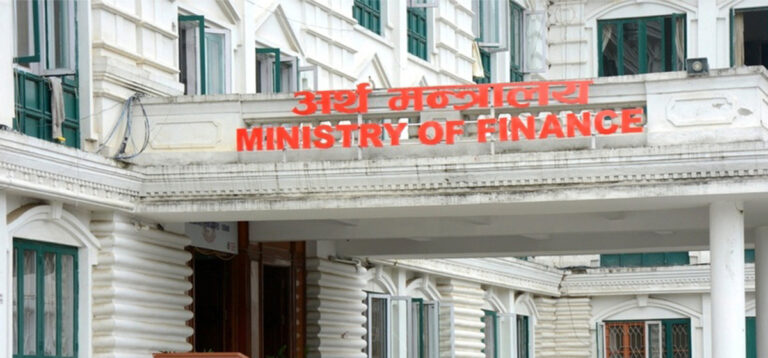KATHMANDU- The government has drafted a bill that would allow it to freeze the accounts of rural and municipal governments if they fail to register the attendance of administrative officers assigned by the federal government.
Local governments have increasingly refused to allow designated officers to report for duty, including in municipalities within the federal capital region. Reports of such incidents are rising in other districts as well. The draft bill, which seeks to amend the Local Government Operation Act 2017 and is expected to be tabled in Parliament soon, empowers the Ministry of Finance to freeze the accounts of any local government that does not recognize the attendance of assigned administrative officers.
Additionally, the government has proposed an amendment requiring a five-member committee to recommend changes to the number and boundaries of local wards before any decision is made. The committee will be led by the head of the District Coordination Committee and include the vice-chairperson or deputy mayor of the concerned municipality, the assistant chief district officer, and heads of the district administration, land survey, and land revenue offices. The chief administrative officer of the respective local government will serve as the member secretary.
Under the Local Government Operation Act 2017, changes to ward numbers or boundaries were based on factors such as population size, geographical suitability, and infrastructure. The new draft bill includes a provision for the district-level committee to analyze these factors and submit a report before making changes.
The bill also requires provincial governments to recommend any changes to the name or administrative center of a rural or municipal government to the federal government. A two-thirds majority of the assembly members must approve such proposals, which must then be sent to the provincial cabinet for forwarding to the federal government.
The new draft requires the village or municipal assembly to determine the ward center with a two-thirds majority. Previously, a simple majority sufficed. The Ministry of Federal Affairs and General Administration reports that around 100 disputes over ward boundaries and centers currently exist.
As the Local Government Operation Act 2017 did not set fees for adventure sports like paragliding and ziplining, the draft amendment introduces provisions for setting fees for these activities.
The draft bill also includes a new provision that considers the presence of over 33 percent of executive members as a quorum if more than 50 percent are absent for three consecutive meetings. It allows the executive body to adopt decisions by a majority of those present, including the chairperson or chief, even if a unanimous decision cannot be reached.
The bill further allows the federal and provincial governments to withhold grants or resources from local governments that fail to hold assemblies until they do. Any unspent amounts from conditional, matching, or special-purpose grants must be deposited into the local government’s reserve fund. Local governments must also submit quarterly reports on the expenditure and physical progress of these grants.
The District Coordination Committee must prepare and send an annual report on the monitoring of rural municipalities and municipalities within 30 days of the first quarter.
The draft bill introduces a provision allowing ward chairpersons and members to submit their resignation to the chairperson or chief if they wish to resign. If the chairperson or chief is absent or suspended, resignations must be submitted to the district judge, who will oversee the oath of office and secrecy.
Finally, the draft bill enables rural municipalities, municipalities, and district coordination committees to form federations or associations to better coordinate with the federal and provincial governments. This will strengthen inter-level coordination and cooperation.
The bill mandates by-elections to fill vacant positions on the district coordination committee if the term has more than one year remaining. It also stipulates that if a vice-chairperson or deputy mayor is absent for more than seven days, the executive body can assign the senior ward chairperson to perform their duties, except those related to the judicial committee.



 About Us
About Us
Comment